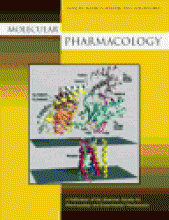Abstract
Effects of piperlactam S (C17H13NO4; mol. wt. 295) isolated from Piper kadsura on phytohemagglutinin (PHA) stimulated cell proliferation were studied in primary culture of human T cells. The results showed that piperlactam S suppressed T cell proliferation at about 0 to 12 h after stimulation with PHA. Synthesis of total cellular proteins and RNA in activated cell cultures was also suppressed. The inhibitory action of piperlactam S was not through direct cytotoxicity. Cell cycle analysis indicated that piperlactam S arrested the cell cycle progression of activated T cells from the G1 transition to the S phase. In an attempt to further localize the point in the cell cycle at which arrest occurred, a set of key regulatory events leading to the G1/S boundary, including gene expression of cytokines and c-Fos protein synthesis, was examined. Piperlactam S suppressed, in activated T lymphocytes, the production and mRNA expression of cytokines such as interleukin-2 (IL-2), IL-4, and interferon-γ in a dose-dependent manner. In addition, Western blot analysis indicated that c-Fos protein expressed in activated T lymphocytes was decreased by piperlactam S. Results of kinetic study indicated that inhibitory effects of piperlactam S on IL-2 mRNA expressed in T cells might be related to blocking c-Fos protein synthesis. Thus, the suppressant effects of piperlactam S on proliferation of T cells activated by PHA seemed to be mediated, at least in part, through inhibition of early transcripts of T cells, especially those of important cytokines, IL-2, IL-4, and arresting cell cycle progression in the cells.
Footnotes
- Received March 24, 2000.
- Accepted August 8, 2000.
-
Send reprint requests to: Dr. Yuh-Chi Kuo, Rm.912, Laboratory of Immunology, National Research Institute of Chinese Medicine, No. 155–1, Sec. 2, Li-Nung St., Shih-Pai, 112, Taipei, Taiwan, R.O.C. E-mail: kuo9111{at}cma23.nricm.edu.tw
-
This study was partially supported by granted from National Science Council, Republic of China (NSC 87-TSC-B-077–001).
- The American Society for Pharmacology and Experimental Therapeutics
MolPharm articles become freely available 12 months after publication, and remain freely available for 5 years.Non-open access articles that fall outside this five year window are available only to institutional subscribers and current ASPET members, or through the article purchase feature at the bottom of the page.
|






